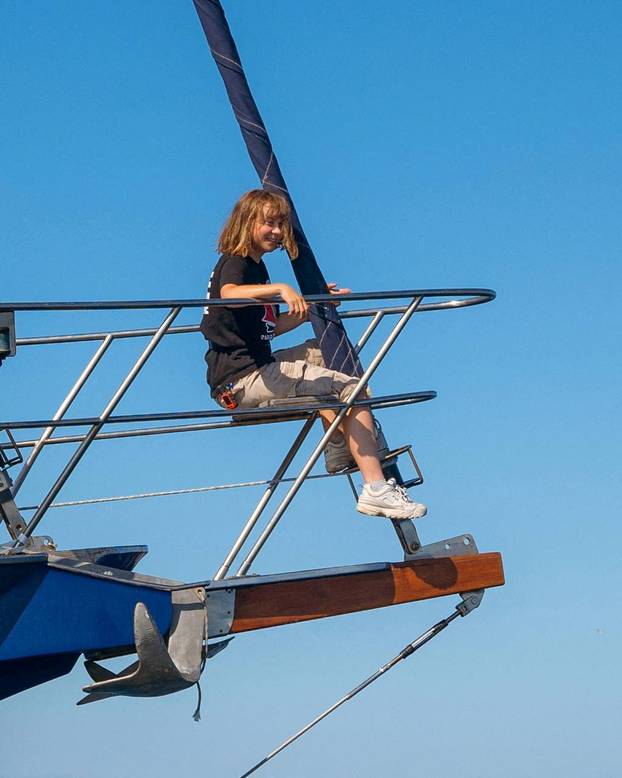Cultural development is being cut back: what are the consequences?
/s3/static.nrc.nl/images/gn4/data130684144-ae0aae.jpg)
A flood destroyed the looms on the Inmeer in Myanmar. In the summer of 2024 everything was suddenly flooded: the workshops, the material, the spinning machines. The most important source of income for the residents of the multi -area was washed away, and with it also the instruments for a craft that has been passed on for centuries.
Cultural Emergency Response (CER) jumped in with money, so that De Weverijen could be rebuilt. About 45 times a year, the Dutch organization provides emergency aid for culture and heritage in crisis areas. They do that, for example, Ukraine, Sudan, and Gaza.
From 2029, the care providers will no longer receive money from the government, just like Prince Claus Fund and the Creative Industry Stimuleringsfonds. Because: money that the Netherlands spends on development in other countries must be more in the ‘Dutch interest’ from Minister Reinette Klever (PVV, foreign trade and development aid). And so the cabinet will stop projects that are aimed at gender equality, professional and higher education, and sports and culture. From 2027, 2.7 billion euros will be cut back on development cooperation. At the beginning of this month, the Chamber debated that cutback, which is not stopped.
Short
Prince Claus Fonds and Cer were already cut by the cabinet, but now see their government financing disappearing from 2029. Until then, the Prins Claus Fund will receive one and a half million euros per year, CER receives 330,000 euros. They are 35 and 20 percent respectively dependent on the government subsidy. The cultural development branch of Stimuleringsfonds Creative Industry will also not get any money anymore. How the organizations solve that, and whether she succeeds is uncertain.
For the Prins Claus Fund, from which CER comes, the survival without government money is endangered. The organization, which has been around since 1996, supports artists and cultural development. Director Marcus Desando of the Prince Claus Fonds emphasizes that « it is very important that culture is recognized as an important amount to the international reputation of the Netherlands ». Culture was not discussed at the parliamentary debate at the beginning of April. « We have approached politicians, » says Desando, « but heard nothing back. » There is now an appointment with a representative.
CER focuses on something that is often overlooked in crisis areas, says CER director Sanne Letschert. « We see that people need cultural continuity, precisely to have a view of a crisis situation. » She therefore still has hope for another solution: « We are financed as a cultural institution, but want to make it clear: culture is part of humanitarian work. » And so she hopes to find money via that route.
Dutch interest
The Netherlands has been conducting an international cultural policy for decades, in which culture is often used as a diplomatic agent. That policy shows how politics thinks about national identity, culture scientist Toine Minnaert from Utrecht University. He obtained his PhD on research into international cultural policy and the political debate about this. That shifted from culture such as ‘Holland Promotion’, diplomatic and economic instrument, in the nineties to culture as a goal in itself, and then the emphasis was again on economic and diplomatic goals. Those changes always hung together with major shifts in parliament, Minnaert sees.
The government’s decision to withdraw part of the financing is reminiscent of how the Netherlands looked at culture in the late 1980s and early nineties. Culture was mainly used as an instrument, in a transactional Attitude that was mainly about: what does this contact yield for the Netherlands? That changed with the first purple cabinet, in which D66 started to play a more emphatic role in cultural policy, says Minnaert. A more « cosmopolitan idea about culture » predominated.
Cultural scientist Toine Minnaert from Utrecht University is now seeing the cabinet returning to that transactional attitude of the 1980s. Development cooperation, or ‘help’, as the minister calls it, can only serve the ‘Dutch interest’.
Dutch interests
The three ‘Dutch interests’ that Klever formulates are: trade and economy, safety and stability, and migration. According to the minister, these interests will be represented with projects in the field of water management, food security and health. Things that the Netherlands is good at, according to the minister in a policy letter. « So we use our strengths to achieve what we think is important. »
This means that the Ministry of Foreign Trade and Development no longer wants to withdraw money for international cultural policy, a post for which the ministers of OCW and BZ are also responsible. « There is no room for new initiatives anymore, » the ministry says.
The government thus exchanges « long -term policy for the short term, » says Syb Groeneveld, director of the Creative Industry Stimuleringsfonds. « I am convinced that it is in Dutch interest to build sustainable connections, to set up networks. There are many possibilities that ultimately lead to economic activities, but not directly, which arise after these types of projects have been successfully realized. »

:format(webp)/s3/static.nrc.nl/images/gn4/stripped/data132512191-bf7b93.jpg)
/s3/static.nrc.nl/images/gn4/data133305174-ec8c91.jpg)





